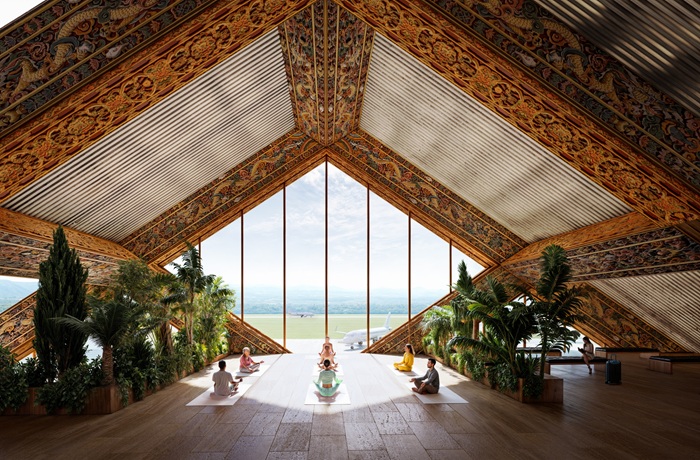Gelephu
International Airport, The Kingdom of Bhutan, project: BIG Bjarke Ingels Group
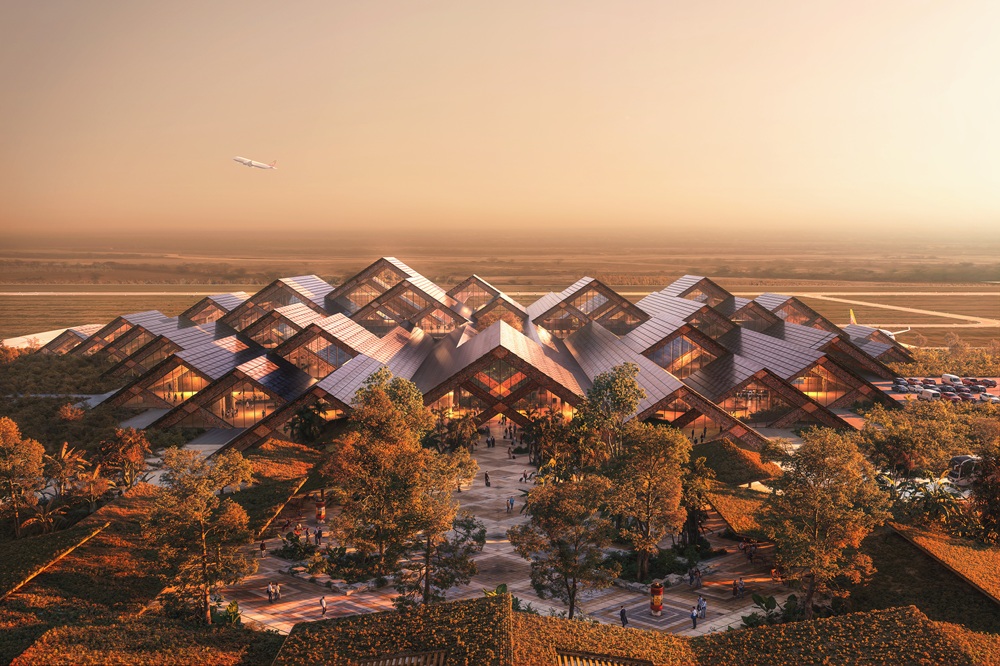
Presented at the
2025 Venice Biennial of Architecture, Gelephu International Airport combines
traditional craftsmanship and modern technology in a modular diagonal grid
structure made of laminated wood and decorated with painted carvings.
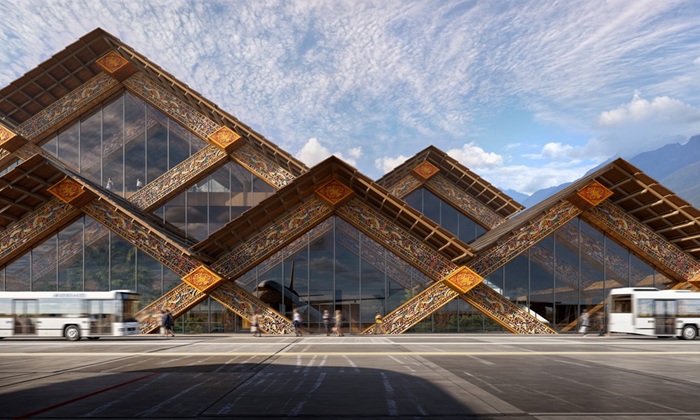
Covering an area
of 68,000 m2, the airport is the result of a joint venture in partnership with
the aeronautical engineering firm NACO and is an integral part of the
masterplan for Gelephu Mindfulness City (GMC, an innovative urban development
project combining economic growth with mindfulness, holistic living and
sustainability designed by BIG, Arup and Cistri.
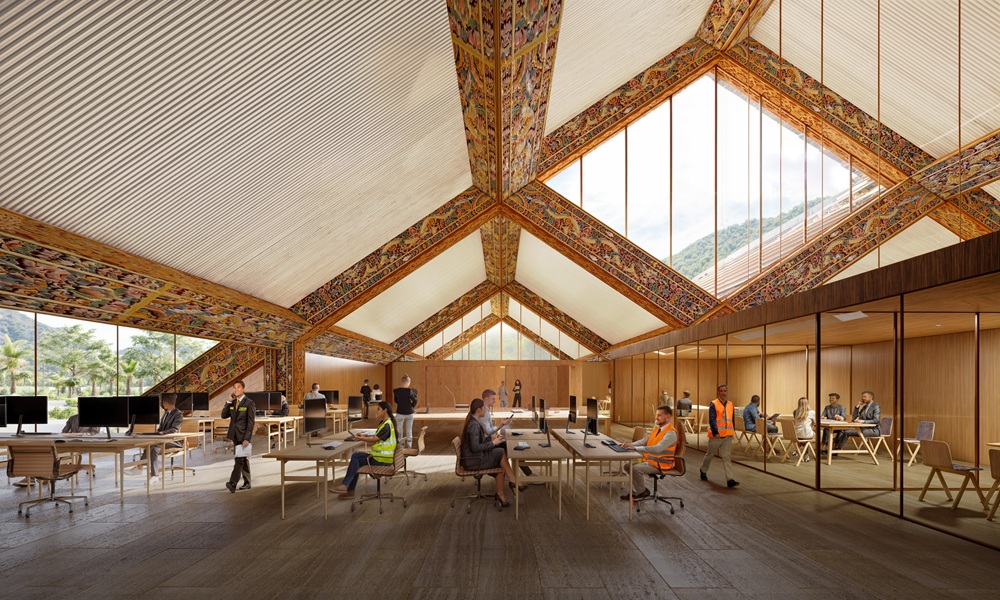
The
airport can handle up to 123 flights-a-day and is projected to cater for 1.3
million passengers-a-year by 2040, rising to 5.5 million by 2065. Designed to
cater for GMC's forecast growth, the airport's wooden frames are structurally
independent to allow easy dismantling and expansion. The airport roof is fitted
with photovoltaic panels in line with Bhutan's development policy as a carbon
negative nation.
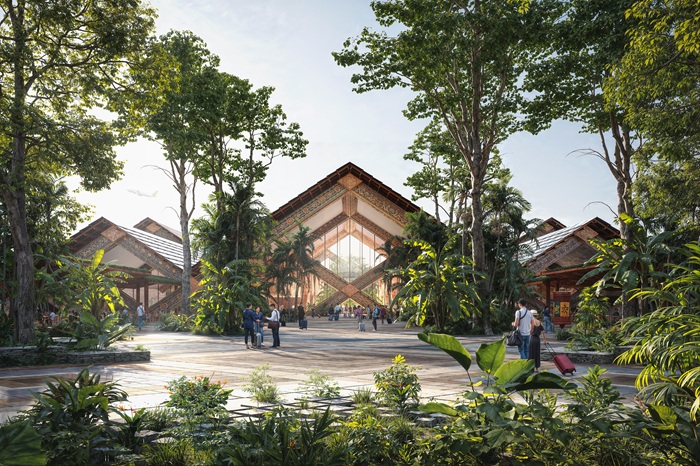
The
installation at the Venice Biennial features a wooden diamond reflecting the
airport façade. Carved in real time, half by a Bhutanese artist and half by machine, the installation celebrates Bhutan's
woodcarving heritage while exploring the role of technology in preserving and
advancing craftsmanship.
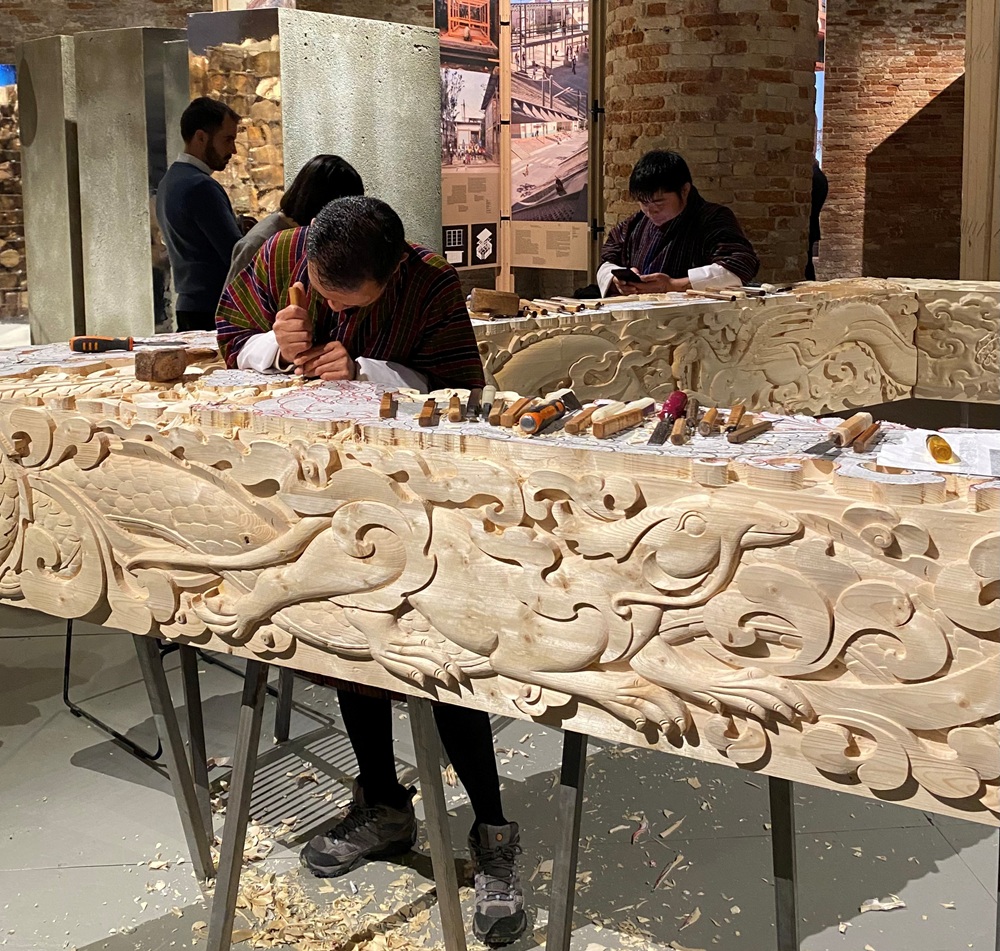
Client: The Kingdom of Bhutan; Collaborators: Netherlands Airport Consultants (NACO), Magnolia Quality Development Corporation Limited (MQDC), Changi Airport Planners and Engineers, Influit, WT Partnership; Project Team: Bjarke Ingels, Frederik Lyng, Giulia Frittoli(Partner in Charge); Per Bo Madsen(Project Manager); Sorcha Burke, Dace Gurecka(Design Lead); Team: Andrea Megan Hektor, Chiara Gargiulo, Dalma Ujvari, Jan Magasanik, Mantas Povilaika, Nanna Gyldholm Møller, Nathan Angelo Osena, Nikol Maraj, Will Chuanrui Yu, Dace Gurecka, Xinyu Zhao, Matthew Goodwill. Renderings by BIG.

